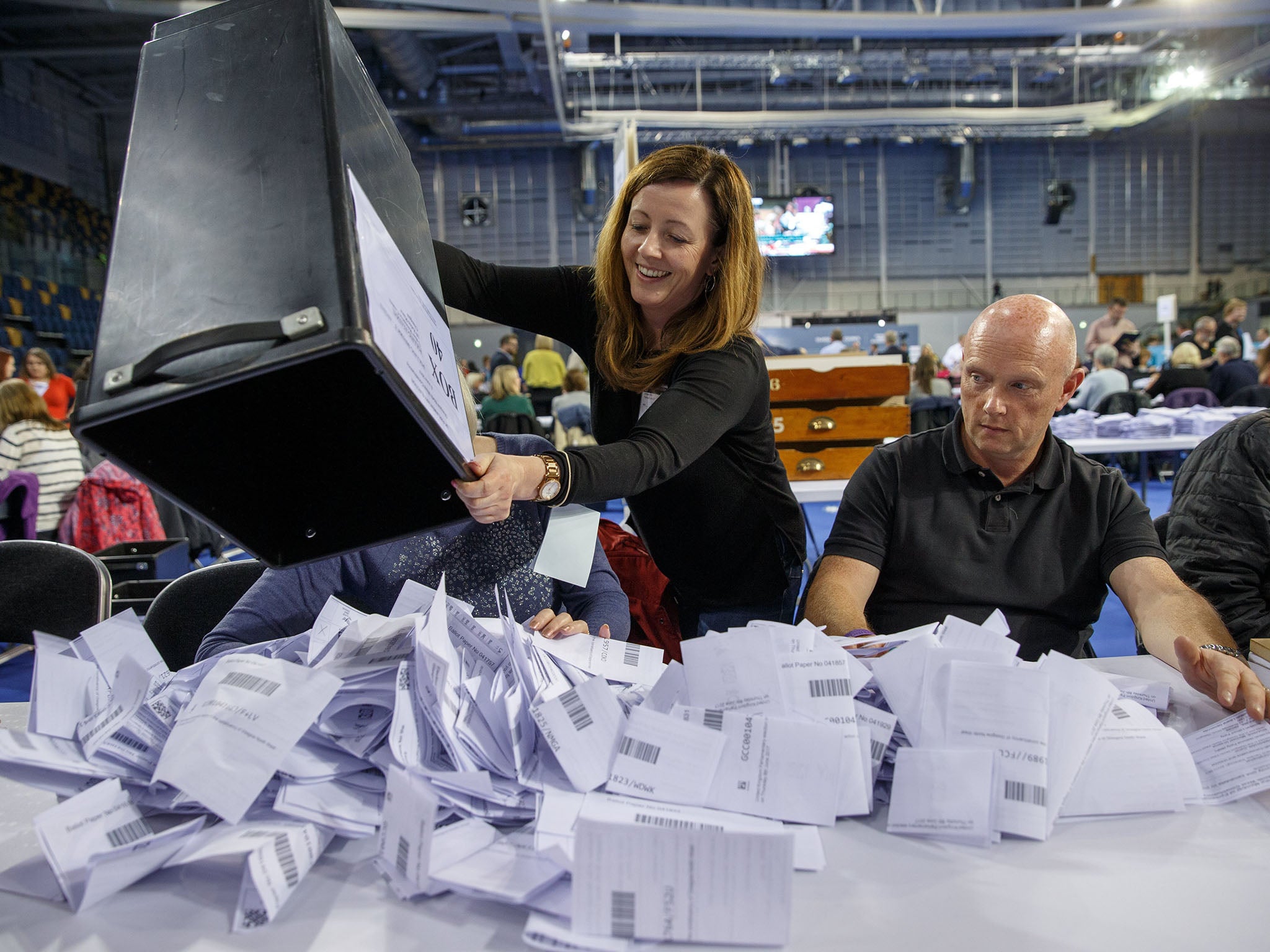Women’s suffrage at 100: These people still can’t vote in UK
List includes children, lords, many foreign citizens, prisoners, those guilty of election-related crimes and royal family

Your support helps us to tell the story
From reproductive rights to climate change to Big Tech, The Independent is on the ground when the story is developing. Whether it's investigating the financials of Elon Musk's pro-Trump PAC or producing our latest documentary, 'The A Word', which shines a light on the American women fighting for reproductive rights, we know how important it is to parse out the facts from the messaging.
At such a critical moment in US history, we need reporters on the ground. Your donation allows us to keep sending journalists to speak to both sides of the story.
The Independent is trusted by Americans across the entire political spectrum. And unlike many other quality news outlets, we choose not to lock Americans out of our reporting and analysis with paywalls. We believe quality journalism should be available to everyone, paid for by those who can afford it.
Your support makes all the difference.The right to vote is afforded to the majority of the population of the UK, but there are still demographics to whom it remains off limits.
On 6 February, 100 years since the Representation of the People Act was passed - when women were first given the right to vote in the UK, here are the people who still cannot vote in the UK.
Children
Rules from the Electoral Commission state that to vote in the UK, you must be aged 18 or over on polling day.
In Scotland, people 16 or over can vote in local elections, but not a general election.
This exclusion of young people has become an increasingly hot topic of debate in recent years, with many campaigning for the age parameter to be reduced to 16.
Campaign group Votes at 16 say over 1.5 million potential voters in the UK are being denied in this way, arguing the law allows a person to leave school, pay income tax and join the armed forces at this age.
Members of the House of Lords
Members of the House of Lords are exempt from voting in general elections, but can participate in local and European votes.
This practice has been the case for hundreds of years, but in 2011 MP Hywel Francis wrote a letter to then deputy Prime Minister Nick Clegg questioning whether it was compatible with the rules of the European Court of Human Rights.
Clegg replied: "The fact that members of the House of Lords have a voice in Parliament makes it legitimate to deprive them of a right to have their voice also heard through their elected representative in the Commons."
Most foreign citizens without UK citizenship
Unless they are a UK, Irish or Commonwealth citizen, a foreign resident in the UK cannot vote in parliamentary elections.
Citizens of the European Union can vote in local elections, provided they live in the area in which they wish to vote, and European elections.
Prisoners
The 1983 Representation of the People Act states people who have been convicted of crimes from which they are or will be imprisoned cannot vote in any election in the UK.
However, people convicted of contempt of court, the offence of being disobedient or disrespectful of a court of law, can vote, as can all civil prisoners, meaning those imprisoned for non-criminal offences such as not paying compensation in a landlord or property dispute.
Also allowed to vote are remand prisoners, and unconvicted prisoners – those held in custody awaiting trial.
Those guilty of election-related crimes
The Electoral Commission states people who are not imprisoned but have been found guilty within the previous five years of "corrupt or illegal practices in connection with an election" cannot vote.
Such practices include using bribery, threats or impersonation to affect the outcome of polling.
The royals
Technically, there is no law stating that the Queen or members of the royal family cannot vote.
However, Parliament guidelines state it is considered unconstitutional for the Monarch or their family to vote in an election.
The official royal guidelines say the Head of State "has to remain strictly neutral with respect to political matters" and is unable to vote or stand for election.
PA
Join our commenting forum
Join thought-provoking conversations, follow other Independent readers and see their replies
Comments